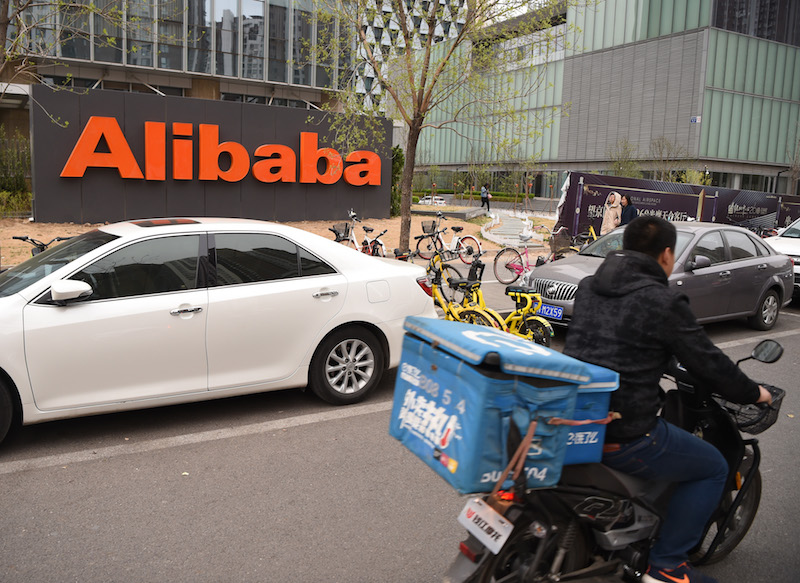Alibaba Moves Closer to Buyout of Ele.me

* The buyout of Ele.me is an important part of Alibaba’s “New Retail” strategy
* Baidu’s exit leaves rivals Alibaba and Tencent as the dominant forces in China’s food-delivery market
E-commerce giant Alibaba Group Holdings moved closer to gaining full control of Ele.me after acquiring Baidu Inc.’s stake in China’s most-popular food-delivery startup.
Online search engine Baidu said Thursday it sold its 5% stake in Ele.me to Alibaba for $488 million. The exit of Baidu leaves its rivals Alibaba and Tencent Holdings as the dominant forces in China’s white-hot food-delivery market
Alibaba, along with its fintech affiliate, Ant Financial Services Group, last month proposed to buy out Ele.me in a deal that values the 9-year-old startup at $9.5 billion. Alibaba and Ant Financial previously owned a combined 43% of Ele.me. Alibaba’s total percentage ownership of Ele.me after the Baidu deal wasn’t clear.
Ele.me became one of country’s largest food-delivery service providers after it acquired a competitor belonging to Baidu in August. After the transaction, Baidu held 5% stake in Ele.me.
In April, another major shareholder of Ele.me, Beijing Hualian Department Store Co., also sold its 2% stake to Alibaba for $185 million.
The buyout of Ele.me is an important part of Alibaba’s “New Retail” strategy to connect online and offline retail spaces. Ele.me is expected to complement Alibaba’s fresh food retail platform Hema, which was launched in 2016.
China’s tech giants have been rushing into the booming internet-based service sectors, such as mobile-based food-delivery, bike-sharing and car-hailing, to gain access to vast numbers of users.
Ele.me currently boasts 260 million users and 2 million merchants as Chinese take to their smartphones to have meals delivered to their doorsteps. Ele.me held 51% of the market in 2017, while its archrival, Meituan-Dianping, backed by Tencent, had a 42% share, according to the market data and research firm Analysys.
While Baidu withdrew from the fiercely competitive market, new players are entering. In April, ride-hailing giant Didi Chuxing rolled out its food-delivery service in Wuxi, East China’s Jiangsu province, igniting a cutthroat turf war with Ele.me and Meituan.
Contact reporter Han Wei (weihan@caixin.com)

- 1Cover Story: China Carves Out a Narrow Path for Offshore Asset Tokenization
- 2Drownings Shake Chinese Enthusiasm for Travel to Russia
- 3China Business Uncovered Podcast: A $15 Billion Bitcoin Seizure and the Fall of a Cybercrime Kingpin
- 4Over Half of China’s Provinces Cut Revenue Targets
- 5Li Ka-Shing’s Port Empire Hit by Forced Takeover Amid Panama Legal Dispute
- 1Power To The People: Pintec Serves A Booming Consumer Class
- 2Largest hotel group in Europe accepts UnionPay
- 3UnionPay mobile QuickPass debuts in Hong Kong
- 4UnionPay International launches premium catering privilege U Dining Collection
- 5UnionPay International’s U Plan has covered over 1600 stores overseas






